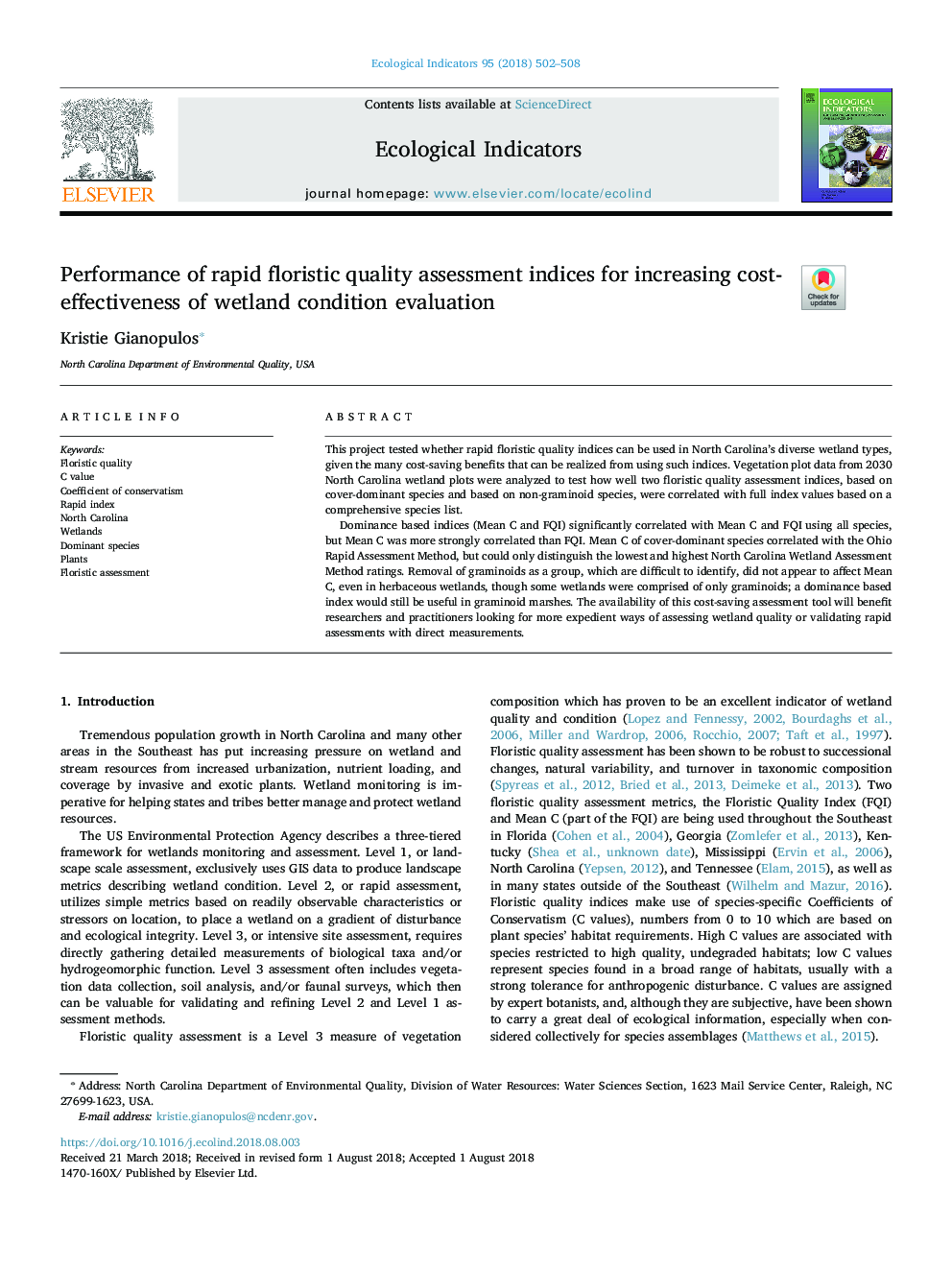| Article ID | Journal | Published Year | Pages | File Type |
|---|---|---|---|---|
| 8844987 | Ecological Indicators | 2018 | 7 Pages |
Abstract
Dominance based indices (Mean C and FQI) significantly correlated with Mean C and FQI using all species, but Mean C was more strongly correlated than FQI. Mean C of cover-dominant species correlated with the Ohio Rapid Assessment Method, but could only distinguish the lowest and highest North Carolina Wetland Assessment Method ratings. Removal of graminoids as a group, which are difficult to identify, did not appear to affect Mean C, even in herbaceous wetlands, though some wetlands were comprised of only graminoids; a dominance based index would still be useful in graminoid marshes. The availability of this cost-saving assessment tool will benefit researchers and practitioners looking for more expedient ways of assessing wetland quality or validating rapid assessments with direct measurements.
Keywords
Related Topics
Life Sciences
Agricultural and Biological Sciences
Ecology, Evolution, Behavior and Systematics
Authors
Kristie Gianopulos,
